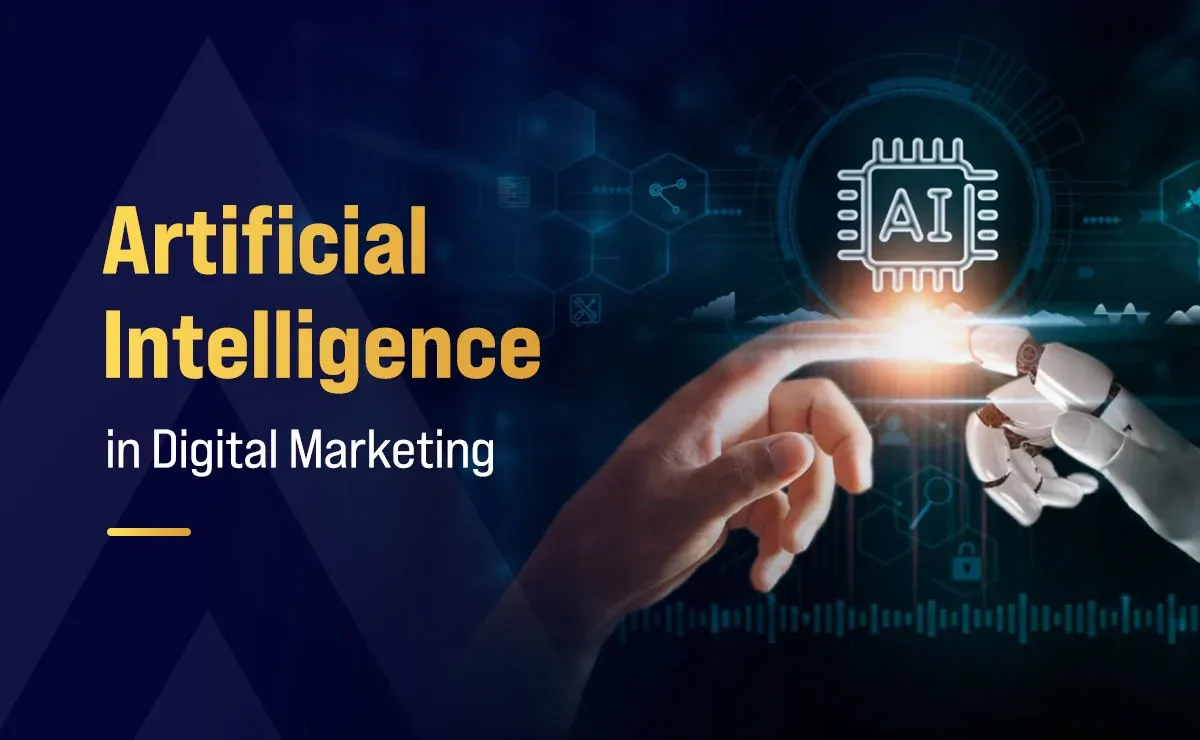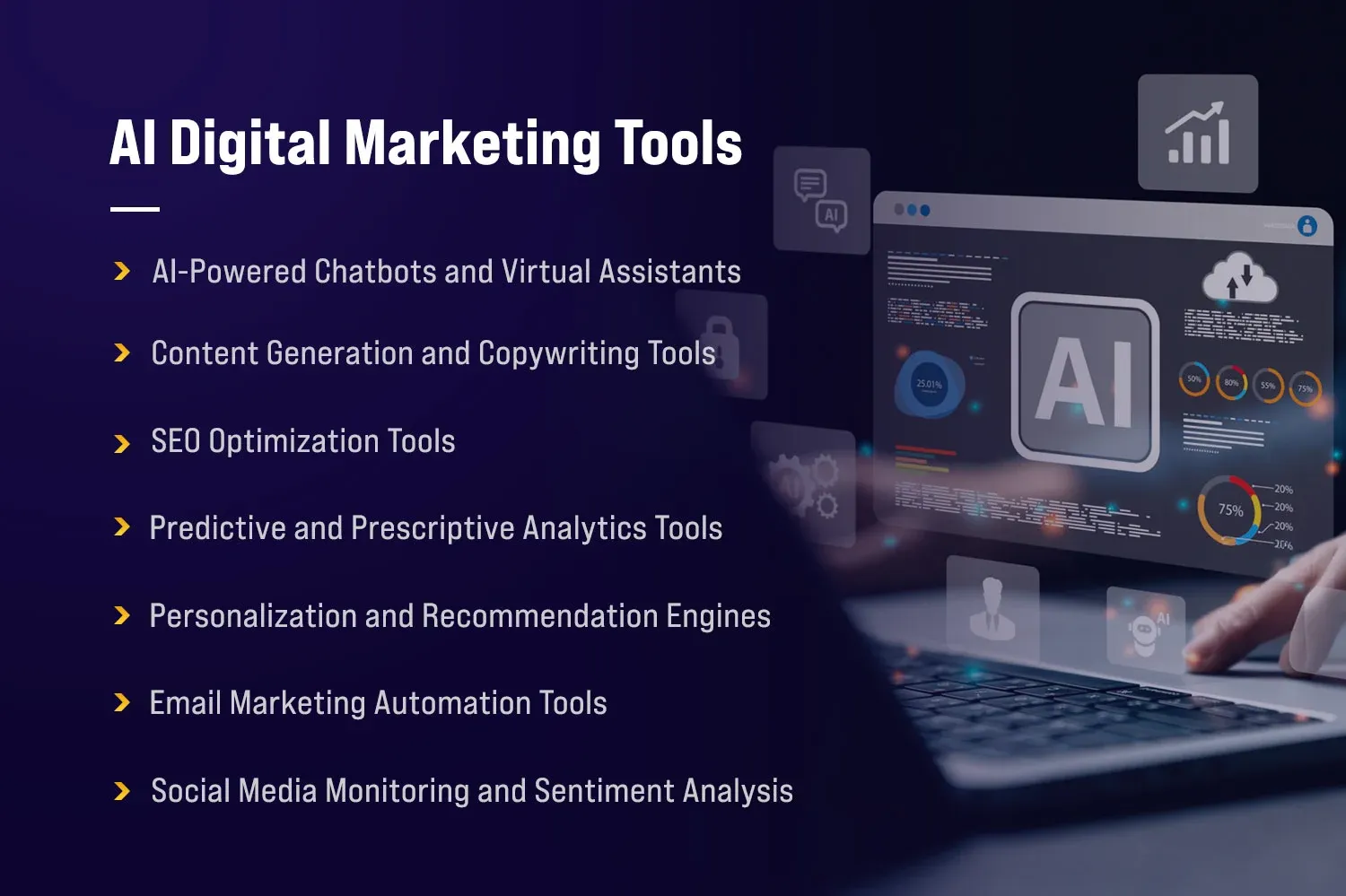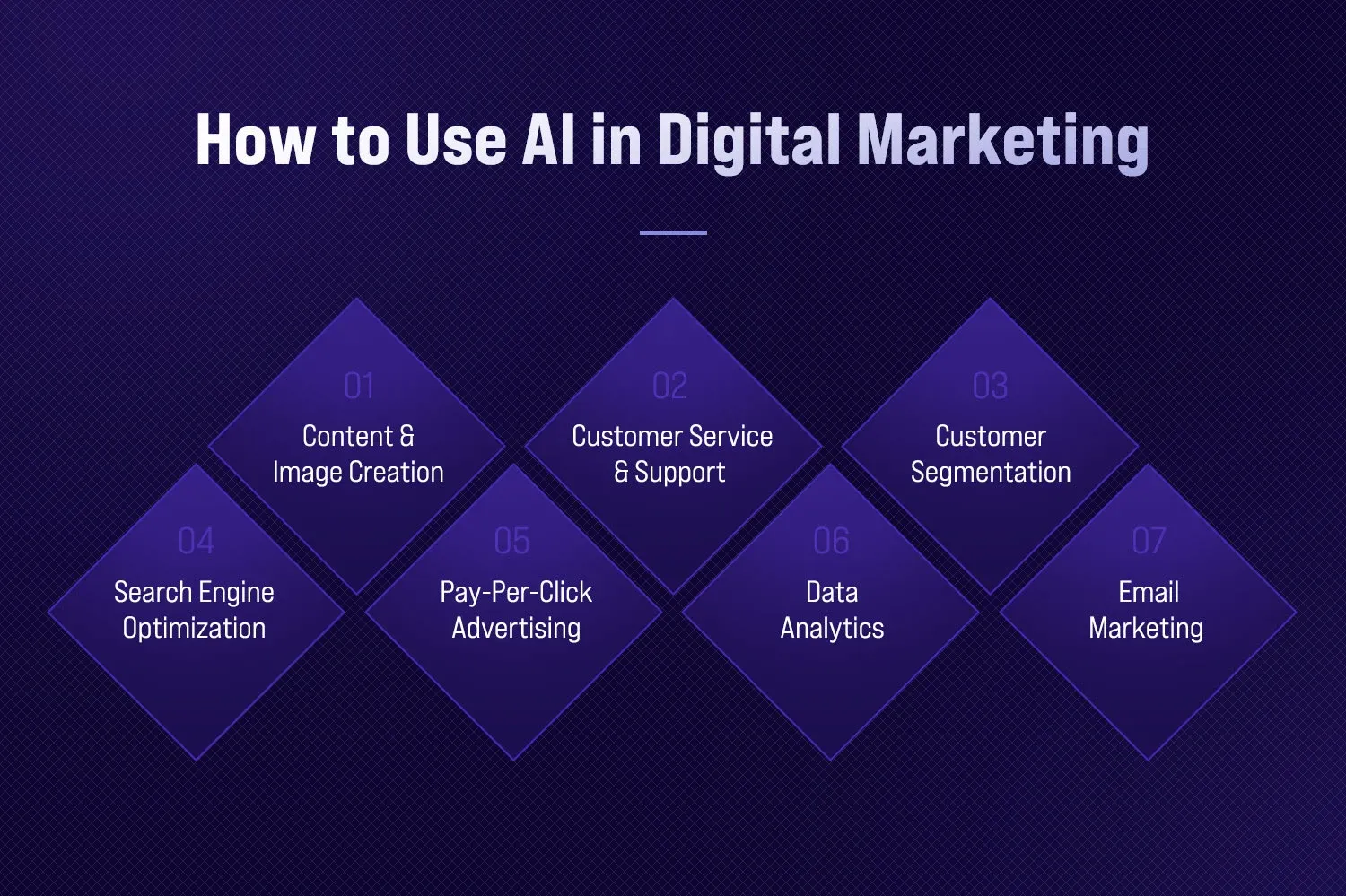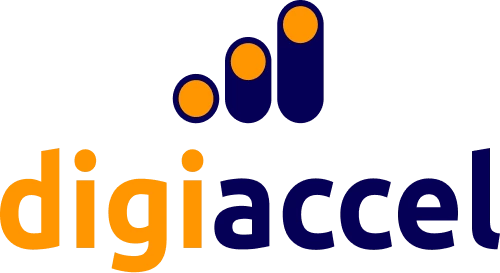Artificial Intelligence in Digital Marketing

Over the past twenty years, breakthroughs in technology have dramatically transformed how marketing operates in the contemporary business landscape This shift is marked by evolving consumer behaviors and increasing digital connectivity, which have led to the dominance of digital marketing strategies for audience engagement.
But talking about the latest developments, it is artificial intelligence (AI) that has emerged as a significant disruptive force within digital marketing, offering capabilities beyond traditional models. The incorporation of AI into marketing strategies is now a tangible reality across various sectors, including retail, finance, healthcare, and entertainment.
However, there are also ongoing concerns about AI’s ethical dimensions, particularly in relation to data privacy, algorithmic transparency, and the risk of reinforcing consumer biases. Such factors have critical implications for marketers, technologists, and business strategists seeking to maintain competitiveness in a data-driven economic environment. This article focuses on assessing AI’s influence within digital marketing strategies.
What is Artificial Intelligence in Digital Marketing?
The role of AI in digital marketing involves leveraging machine learning, data analytics, natural language processing (NLP), and related AI technologies to streamline, refine, and tailor marketing approaches. By analyzing vast amounts of consumer data and learning from interactions in real time, AI enables marketers to forecast trends, create tailored content, and engage customers more effectively across multiple channels.
This empowers marketers to analyze massive datasets, predict user behavior, and make strategic decisions faster and more accurately than traditional methods. AI’s capability to mimic cognitive functions such as learning, reasoning, and problem-solving allows brands to deliver more meaningful interactions, automate time-consuming tasks, and continuously refine their strategies in real time.
AI doesn't replace marketers—it augments their abilities. By handling the heavy lifting involved in data analysis, campaign management, and customer personalization, AI enables marketing teams to focus on strategy, creativity, and relationship building, which are inherently human strengths.
AI Digital Marketing Tools
AI tools in digital marketing are diverse and cater to different parts of the customer's journey. Here’s a breakdown of the most powerful categories of AI digital marketing tools and their specific functions:

AI-Powered Chatbots and Virtual Assistants
AI-powered chatbots and virtual assistants are tools that simulate human-like conversations through text or voice interfaces. These systems can handle inquiries, provide product recommendations, answer FAQs, and assist customers through various stages of the buyer journey—all in real time.
They rely on NLP and machine learning to understand user inputs, interpret intent, and deliver contextually relevant responses. Over time, they learn from interactions, improving accuracy and engagement.
Marketers use them for lead qualification, customer support, appointment scheduling, product assistance, and retention campaigns. These tools are vital for delivering 24/7 support, reducing response times, and increasing customer satisfaction. Examples include Drift and Intercom.
Content Generation and Copywriting Tools
These tools use AI to automatically create text content for various digital platforms like blogs, social media, product descriptions, email copy, ad headlines, and more. Leveraging large language models trained on vast text corpora, these tools understand prompts and generate human-like content based on tone, style, and keyword requirements. Some tools even provide content scoring and SEO recommendations.
Marketers employ these tools to scale content production, optimize existing content, and maintain a consistent brand voice. They’re especially helpful in creating A/B test variants, repurposing content across channels, and saving creative time. Examples include Jasper and Writesonic.
SEO Optimization Tools
AI-based SEO tools help improve website visibility on search engines by analyzing on-page and off-page SEO factors, keyword performance, competitor strategies, and content gaps. They utilize machine learning to scan websites, evaluate rankings, identify opportunities for improvement, and suggest SEO-friendly changes in real time. Some tools even integrate with search engine algorithms to adapt faster to updates.
Marketers use these tools to automate keyword research, track SERP rankings, identify technical SEO issues, and optimize content for search intent. By doing so, they drive organic traffic and enhance search engine performance with minimal manual effort. Examples include Clearscope and Surfer SEO.
Predictive and Prescriptive Analytics Tools
Prescriptive analytics tools analyze historical and real-time data to predict future outcomes (predictive) and recommend actions to achieve specific goals (prescriptive). By employing sophisticated algorithms and AI frameworks, they sift through extensive datasets to identify hidden trends and relationships that human analysis might overlook. They can forecast customer behavior, sales trends, churn risk, and campaign ROI.
Predictive analytics applications assist in categorizing customers, prioritizing leads, and anticipating market demand. Prescriptive analytics goes a step further by suggesting the next best action—whether it’s offering a discount, retargeting, or changing content strategy. Examples include HubSpot and Salesforce Einstein.
Personalization and Recommendation Engines
These engines customize the user experience by recommending content, products, or services tailored to individual preferences and behaviors. AI evaluates both live and past user actions, transaction records, demographic details, and online navigation habits. It then uses collaborative or content-based filtering algorithms to generate recommendations.
ECommerce and media services leverage these technologies to boost product visibility and user interaction. Personalized landing pages, emails, and shopping suggestions increase conversion rates and build customer loyalty. Examples include Adobe Target and Dynamic Yield.
Email Marketing Automation Tools
These tools automate and personalize email marketing campaigns, from list segmentation to content customization, delivery timing, and response tracking. AI analyzes user data and engagement behavior (opens, clicks, purchases) to determine optimal send times, subject lines, content types, and follow-up actions.
Email campaigns driven by AI improve response rates by delivering tailored content to the ideal recipients at optimal times. It also enables behavior-triggered campaigns, nurturing sequences, and abandonment recovery. Examples include Mailchimp and ActiveCampaign.
Social Media Monitoring and Sentiment Analysis
These solutions track social platforms for brand references, emerging trends, and consumer opinions. They assess the emotional context and purpose behind user posts to generate practical recommendations. Using NLP and machine learning, these tools categorize social mentions into positive, negative, or neutral tones, detect emerging issues, and identify influencers or potential crises in real-time.
They help manage brand reputation, respond quickly to customer feedback, gauge public reaction to campaigns, and inform content strategy. Real-time insights allow for proactive customer engagement and competitive analysis. Examples include Sprout Social and Hootsuite Insights.
Examples of AI in Digital Marketing
Let’s look at examples of various instances where AI is used in digital marketing.
AI in E-Commerce
Amazon
Amazon exemplifies how deeply AI can transform the e-commerce experience. From AI-curated product suggestions to voice-activated purchases via Alexa, Amazon integrates AI throughout the entire customer experience.
Its AI systems analyze browsing history, purchase patterns, and even speech inputs to tailor product suggestions, automate fulfillment through robotics, and optimize supply chain logistics. This leads to seamless interactions, greater customer loyalty, and enhanced sales performance.
AI in Advertising and Campaigns
Google’s Performance Max initiatives exemplify AI’s transformative role in ad optimization. These campaigns use machine learning to automatically serve ads across all Google platforms—Search, YouTube, Gmail, Maps, and Display—based on real-time user behavior and intent signals.
Marketers simply provide creative assets and goals, while Google’s AI handles the optimization of ad placements, bids, and targeting to maximize ROI. This reduces manual effort while significantly enhancing campaign performance.
AI in Social Media Marketing
Coca-Cola
Coca-Cola's “Create Real Magic” campaign is a trailblazing use of AI in social media marketing. The brand invited creatives and fans to generate digital artwork using an AI platform that drew from Coca-Cola’s historic brand assets.
The AI curated unique, personalized ad content submitted by users, and selected winners were featured in iconic locations like Times Square. This groundbreaking effort not only boosted interaction but also demonstrated how AI can merge brand essence with creative innovation.
AI in Content Creation
Grammarly
Grammarly, known for its real-time grammar and writing assistance, has embraced generative AI through GrammarlyGo. This tool helps marketers and writers generate content tailored to their audience and tone of voice.
Whether it’s crafting engaging emails, blog posts, or marketing copy, GrammarlyGo ensures consistency, clarity, and creativity across all platforms. It’s especially beneficial for marketing teams seeking to expand customized messaging without compromising effectiveness.
AI in Customer Service and Chat Support
IBM Watson Assistant
IBM’s Watson Assistant is an advanced conversational AI system that elevates customer service by providing intuitive, human-like dialogue. It understands complex queries, learns from past conversations, and can escalate to human agents when needed.
By integrating Watson Assistant, businesses enhance their support systems with 24/7 availability, faster issue resolution, and more accurate responses—leading to improved customer satisfaction and operational efficiency.
AI in Search Engine Optimization
BrightEdge
BrightEdge’s AI-powered SEO platform, known as BrightEdge Insights, acts like a virtual data analyst for digital marketers. It uses deep learning to assess website performance, identify SEO gaps, suggest optimizations, and benchmark against competitors.
The platform can automatically generate recommendations for content improvements and technical SEO fixes, helping marketers stay ahead in search rankings with minimal manual input.
How to Use AI in Digital Marketing
Here’s a comprehensive explanation of how to use AI in digital marketing implemented across various marketing functions.

Content and Image Creation
AI has revolutionized content and visual creation by automating ideation, drafting, editing, and even design. Tools like GrammarlyGo and OpenAI’s ChatGPT help write blog posts, social media captions, emails, and ad copy tailored to a brand’s tone and target audience. AI content generators can also adapt writing styles based on user input and engagement metrics, enabling personalization at scale.
For visual content, AI platforms can generate high-quality graphics or edit photos with minimal input. BuzzFeed, for example, uses AI to create personalized quiz results, boosting creativity and audience engagement.
Customer Service and Support
AI is enhancing customer service through intelligent, always-on support systems like chatbots and virtual assistants. Such platforms harness NLP to interpret and address customer inquiries instantly. They manage diverse tasks, from answering basic questions to facilitating transactions and escalating intricate support cases efficiently.
Brands like Uber and Starbucks use AI not just for customer communication but also to predict customer needs and personalize responses, thus creating smoother and more satisfying service experiences. These systems reduce human workload, cut operational costs, and provide consistent service across time zones.
Customer Segmentation
AI specializes in analyzing enormous volumes of consumer data to detect trends that manual analysis might miss. Machine learning models enable AI to categorize audiences by activity, demographics, past purchases, and interaction frequency.
For example, AI might identify a segment of customers who are likely to churn and trigger automated nurturing campaigns or spotlight those most likely to convert, guiding remarketing strategies.
Search Engine Optimization
AI streamlines technical SEO processes, including resolving dead links, enhancing page load times, and creating optimized metadata. Certain platforms even suggest keywords and optimize entire content strategies. This allows marketers to focus more on creativity and strategic decision-making while AI handles the optimization behind the scenes.
For example, tools like SEMrush, Yoast, and BrightEdge use AI to optimize content based on keyword analysis, competitor benchmarking, and readability scoring. These platforms analyze how users interact with content and provide actionable suggestions on improving SERP performance.
Pay-Per-Click (PPC) Advertising
AI is transforming PPC advertising by automating bidding strategies, optimizing ad placements, and refining targeting in real time. Platforms like Google Ads’ Performance Max use AI to analyze user behavior and intent signals across platforms (Search, YouTube, Gmail, and Display) and automatically serve the most relevant ads.
Companies like Facebook use AI to generate and refine ad copy based on user interaction history, enabling marketers to run high-conversion campaigns with less manual input. AI can also A/B test ad creatives, adjust budgets dynamically, and suggest optimizations, maximizing ROI while minimizing human effort.
Data Analytics
One of AI’s strongest contributions to digital marketing lies in its data-crunching capabilities. AI solutions can interpret massive datasets from multiple channels—such as web traffic, social platforms, CRM databases, and buying behavior—and convert them into strategic insights.
Predictive analytics forecasts future behavior, while prescriptive analytics recommends actions for campaign improvement. This data-driven approach enables smarter and faster decision-making at scale.
Email Marketing
AI makes email marketing more personalized, timely, and effective. Tools like HubSpot’s Content Assistant and Marketo Engage use AI to segment email lists, recommend optimal send times, and tailor subject lines and content based on user behavior and preferences.
AI also analyzes past email performance to determine which formats, CTAs, and offers drive the most engagement. By automating follow-ups and using generative AI to write messages in a brand’s tone, marketers can maintain consistent communication with prospects without exhausting their creative resources.
What are the Pros & Cons of AI in Digital Marketing?
Let’s examine the key advantages and drawbacks of AI in modern digital marketing.
Advantages
- Mass Personalization: AI allows marketers to customize content and suggestions for individual users based on their actions, preferences, and prior engagements. This tailored approach boosts interaction and drives higher conversion rates.
- Operational Efficiency: AI handles repetitive tasks like email automation, social media management, and audience segmentation, enabling marketing teams to concentrate on strategic initiatives such as creative development and campaign refinement.
- Insight-Based Strategies: AI’s capacity to assess large datasets offers practical intelligence, enabling marketers to choose wisely. This minimizes dependence on assumptions and enhances ROI efficiency.
- Real-Time Adaptation: AI systems can monitor campaign performance in real time and suggest or implement changes on the fly. This keeps marketing tactics adaptable to shifting consumer patterns and industry developments.
- Always-On Support: AI chatbots and virtual assistants offer uninterrupted service, addressing inquiries, troubleshooting issues, and guiding customers through purchasing processes, thereby improving satisfaction and retention.
Disadvantages
- High Initial Costs: Implementing AI technology, especially custom solutions, can involve significant upfront investment. The high costs of AI implementation and upkeep may pose challenges for smaller enterprises with constrained budgets.
- Data Security Risks: Since AI depends on user data, strict adherence to regulations like GDPR is essential to maintain compliance and trust.
- Complex Implementation: Integrating AI tools with existing marketing systems or legacy infrastructure can be technically complex and time-consuming. It may require specialized skills, staff training, and system overhauls to ensure seamless adoption.
- Data Quality Reliance: AI’s performance hinges on the integrity of input data. Inaccurate, biased, or obsolete information can result in erroneous conclusions, ineffective suggestions, and suboptimal campaigns.
- Job Displacement Risks: While AI augments marketing roles, there's concern over certain jobs being rendered obsolete by automation.
What Essential Skills Are Needed for AI-Powered Digital Marketing?
To thrive in today’s AI-powered marketing landscape, professionals must blend technical expertise with strategic and creative thinking. Below are the most essential AI-powered digital marketing skills marketers should develop to remain competitive and effective:
- Data Analysis & Interpretation: The foundation of AI marketing is data. Professionals must excel at interpreting complex data, recognizing trends, and converting findings into executable tactics. Familiarity with tools like Google Analytics, Tableau, or Power BI is essential.
- Machine Learning Fundamentals: While coding expertise isn’t mandatory, a strong grasp of how machine learning algorithms function helps marketers collaborate with tech teams, evaluate AI tools, and apply them strategically in areas like customer segmentation and predictive analytics.
- SEO & SEM Optimization: AI tools play a major role in search visibility. Marketers should understand how to use platforms like SEMrush, BrightEdge, or Yoast to optimize content, track performance, and stay ahead of algorithm changes.
- Content Strategy & AI-Assisted Creation: Content remains king—but AI is the new co-creator. Marketers must know how to work with generative AI tools to produce high-quality, personalized, and scalable content while maintaining brand voice and originality.
- Customer Journey Mapping: AI can reveal deep insights into consumer behavior. Marketers should apply these insights to craft campaigns that resonate with different phases of the buyer’s journey, ensuring relevance across all touchpoints.
- CRM & Marketing Automation Platforms: Hands-on experience with tools like Salesforce, HubSpot, Adobe Marketo, or Mailchimp enables marketers to automate workflows, personalize communications, and manage leads effectively using AI-enhanced functionalities.
- AI Ethics & Compliance Awareness: With the rise of AI, marketers must be vigilant about privacy, transparency, and algorithmic bias. Understanding legal frameworks and principles of ethical AI usage ensures trust and compliance in all marketing practices.
These skills form the backbone of AI-driven marketing success. By integrating analytical thinking, creativity, and ethical responsibility, marketers can harness AI’s full potential—without losing the human touch that drives authentic engagement.
Summing Up
Artificial intelligence has become a powerful catalyst transforming the landscape of digital marketing. From hyper-personalized content and predictive analytics to real-time customer support and campaign optimization, AI offers unmatched efficiency and strategic depth. Yet, its implementation is not without challenges—cost, complexity, and ethical concerns remain key considerations.
In the end, top-performing marketers will master combining AI’s accuracy with human ingenuity, emotional intelligence, and ethics. AI’s advancement won’t eliminate marketers—it will enhance their capabilities.
Tomorrow’s digital marketing will balance automation with human-centric intelligence. Hence, now is the time for businesses to embrace AI not as a replacement, but as a trusted partner in crafting smarter, more engaging, and more impactful marketing strategies.

